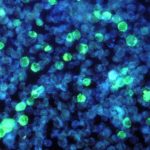It has been suggested that parasitic worms such as hookworms that can live in human intestines may provide a potential therapy for autoimmune diseases such as MS. It is thought that they produce molecules that control the host’s immune response to avoid rejection and in doing so may calm the cells of the immune system that contribute to autoimmune disease.
However, there is a concern that any beneficial effects of ‘probiotic’ therapies based on worm infections may be offset by the harmful effects of the worms such as diarrhoea, vomiting, intestinal pain and malnutrition.
For this reason researchers have been investigating the molecules that worms produce in an effort to develop potential drugs based on these molecules. Earlier this year the full genome of the pig whipworm was described see earlier news article that may help identify these molecules.
Now, a research team led by Professor Ray Norton of Monash University in Melbourne, together with his collaborators in California, USA, has identified two promising molecules produced by hookworms that can selectively modulate the human immune system.
Professor Norton has previously identified a molecule produced by a type of sea anemone that can block potassium channels, known as Kv1.3, found on a particular type of immune cells. These proteins are currently in Phase I clinicals for safety in humans (for more information see an earlier news article).
With the potential therapeutic effects of hookworms in mind, Professor Norton and the team went looking for similar molecules that might be found in the worms. He identified a range of molecules and narrowed it down to the two most promising.
The researchers conducted tests in healthy animals and human immune cells grown in the laboratory, and showed that these worm molecules can selectively suppress the activity of T effector memory cells that are implicated in autoimmune diseases.
This targeted action on only a small proportion of immune cells is a promising development as many MS therapies have a broader effects in modifying immune system activity.
This is only the first step on the long road of experiments and testing that potential new therapies must take before clinical trials can be conducted, but it is none-the-less an interesting development.
The research was published in the FASEB Journal – view the abstract here.






